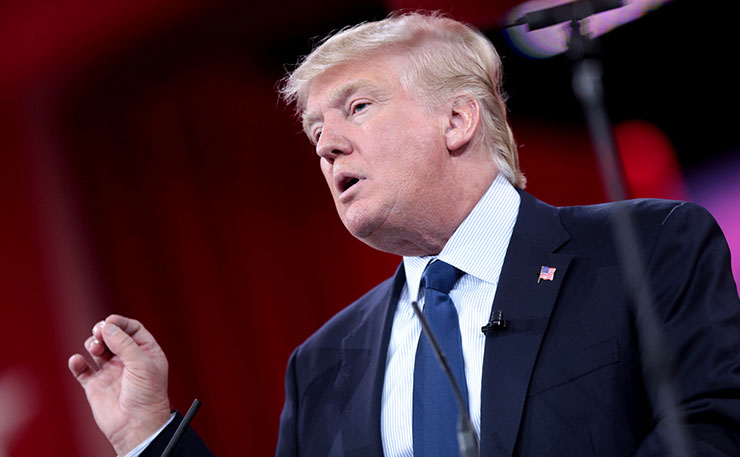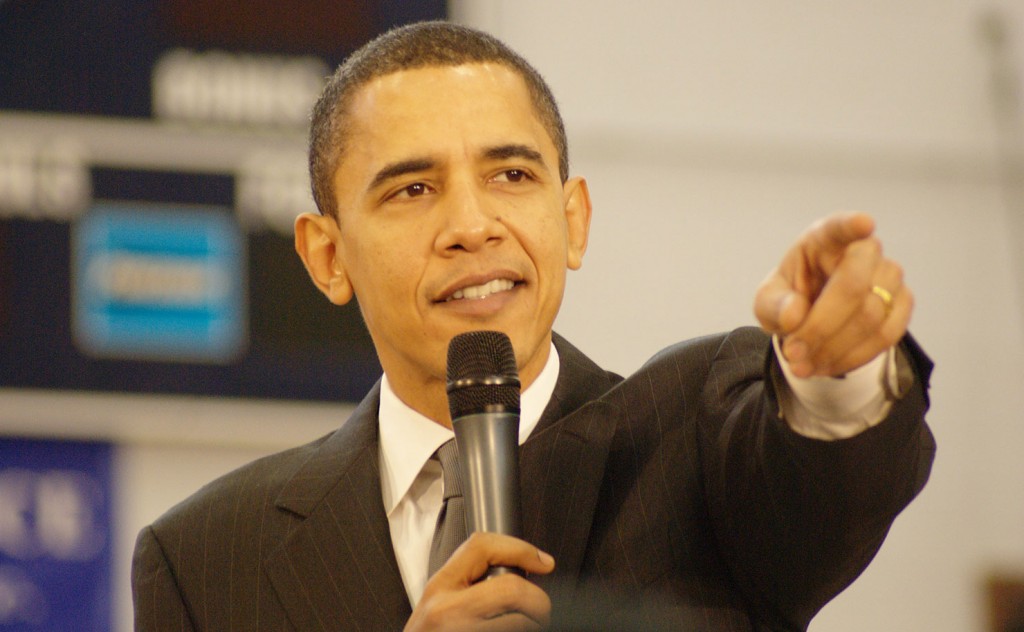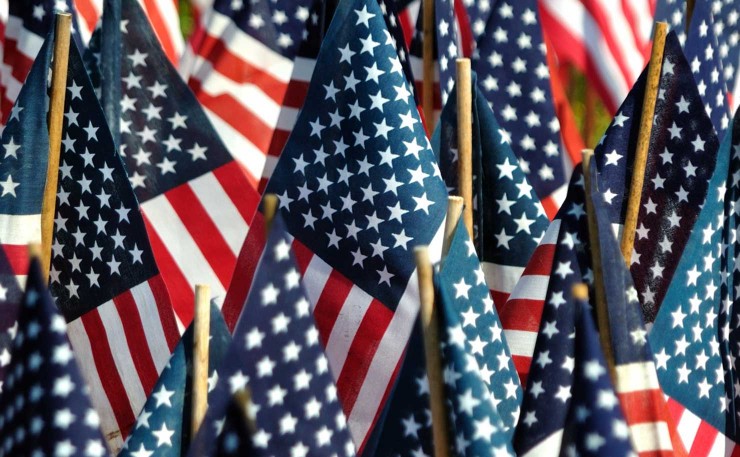In the next 48 hours, US politics may once again markedly change the world we live in. Thomas J. Adams, a lecturer in history and American studies at the University of Sydney, breaks down the states to watch.
It may be a cliché that American political life has become a global reality sideshow, but nevertheless it bears a good deal of truth.
Horrifying, outlandish, disturbing, occasionally hilarious, entirely predictable, and utterly and completely absurd, Donald Trump’s presidency has enraptured a global audience with all the hallmarks of a great middlebrow piece of mass entertainment. Plot twists, schadenfreude, sex, dastardly villains, backstabbing, unabashed lies, tragic martyrs, porn stars, and the possibility of the fall of empire, Gibbon-style. Game of Thrones eat your heart out.
For those who follow American politics — whether within the United States or from 12,000 kilometres across the Pacific — the nearly two years of Donald Trump’s presidency has made it harder than ever to focus one’s attention on the slow and arduous processes required to build an actually existent progressive politics.
American political analysis — especially that which reaches Australia or occurs within its ever-narrowing media confines — tends to be of the handicapping and horserace variety. Such myopia can obscure the substantive shifts on the ground that are important not just for resisting Donald Trump, but building a real alternative grounded in redistribution, a robust defence of democratic rights and equal protection, and a less imperial global posture.

If the last two years (or more to the point, the last 50 years) of American life have made anything clear, it is the simple fact that there is no left in the United States worth speaking of. That is, there is no mass progressive and anti-imperial institutional structure capable of mounting a credible challenge for power at the national level of American governance.
As the first major democratic referendum on Trump’s America approaches, it’s hard to remove oneself from all the narrative plots, liberal hand-wringing, and Trump’s constant self one-upmanship of offense, lies, and attacks on the Constitution. Making fun of a sexual assault survivor’s memory? Let’s raise it by a horde of economic refugees on foot and weeks away from the American border coming for your jobs, your culture, your country, and probably your daughters while they’re at it. Not enough? Time to go all in with the threat of an unquestionably unconstitutional attack on the 14th Amendment, the lynchpin of modern American democratic rights.
To this mix, add a multibillion dollar global scientistic polling and predictivity industry operating at a weird crossroads of consumer market research, methodological individualism, decontextualized aggregation, and unfalsifiability. Stir in a mass media environment that promises that hundreds of millions of global citizens will spend time on Tuesday evening (or Wednesday afternoon here) watching elections returns or refreshing results on websites like global sports empire ESPN’s political entertainment arm fivethiryeight.com. We are left with something along the lines of the World Cup meets the Bachelor for global mass culture with the potential stakes ranging from women’s self ownership of their bodies to global war.
For sure, the control of the American Congress is of momentous domestic and international significance. Democratic control of one chamber would enable the worst excesses of Trump’s presidency and Republican rule to be checked in important ways. Democratic control of both would effectively curtail his ability to do much outside of executive order (not to be underestimated) and wage war (to be positively feared, perhaps even more so in a situation where he is politically impotent at home).
For those of us concerned with establishing a progressive politics that can both offer meaningful changes in people’s lives and vanquish from domestic and global life the revanchism of not just Trump, but also his somehow less offensive, if more homicidal, predecessors like George W. Bush, it can feel demoralising to tune into this high production value battle between the forces of hyper-reaction and those that are merely shocked, shocked, shocked that, to paraphrase Brecht, the butcher has blood on his hands.

With that in mind, there are some things worth watching on Wednesday afternoon that could both actually happen and give genuine hope for people around the world who believe the best thing that could occur in American politics is a disruption that not only curbs Donald Trump, but show’s signs that a real alternative way forward might be materialising.
For those looking for a roadmap for how to rebuild political strength in supposedly unlikely places, Richard Ojeda’s race for West Virginia’s 3rd Congressional District is a good place to start. In 2016, the West Virginia 3rd went 72.5% to 23.3% for Donald Trump. The southern West Virginia region has been oft-identified as the heart of “Trump Country,” a nation of contested borders whose populace can nevertheless only be understood through reversion to Victorian era anthropological methodologies, or so we would be told.
Two years later, Ojeda is running neck and neck against Republican Carol Miller in one of the nation’s poorest districts and one hit especially hard by the opioid epidemic and state politics that has put the interests of coal industry executives over that of miners, teachers, and social services.
Miller is the heiress to a minor Ohio Valley McCarthyite political dynasty and married the millionaire heir to regional car dealership – about as good an avatar for the Trump years as one could imagine. Ojeda comes from generations of coal miners (and proud union members) and is a decorated Army veteran who served tours in Afghanistan and Iraq as paratrooper before returning home to teach high school.
Ojeda is running the kind of no-holds barred working-class campaign that many have long suspected can win over voters in places like West Virginia if done clearly, unequivocally, and in the right local pitch. One of the biggest legislative supporters of last February’s momentous wildcat teacher’s strike in the state, Ojeda is staying on a clear message of universal health care, education investment, and straight class conflict. Teachers, coal miners, and West Virginia citizens decimated by skyrocketing health care costs and opioids coming together against coal executives, a pharmaceutical-industrial complex profiting on addiction, and the legislators and politicians they have bought and paid for.
In Northwestern Iowa, three-term Congressman Steve King is facing his toughest ever election test. This is a man who pals around with far-right European nationalist groups, retweets the Daily Stormer, and whose racism and xenophobia are so clear and obvious that even the chairman of that leading civil rights organization, the National Republican Congressional Committee, recently rebuked him.
King’s opponent is J.D. Scholten, a young political novice who is mounting an old-school barnstorming campaign, having just completed his third round of town halls in all 39 of the district’s counties spread out over nearly 60,000 square kilometers. A former journeyman professional baseball player and local sports hero, Scholten is hammering King on his lack of attention to agricultural issues and his history of spending more time with foreign fascists than actually passing or supporting any legislation that would benefit the family farmers that are the backbone of this part of Iowa.
Along the way, he is unabashedly pushing for Medicare for all, a revitalization of the labour movement, and living wage legislation. My grandmother grew up on a farm in this district and my childhood memories of the decency of distant relatives and a cultural concern with collective well-being are being born out in indications that the race is a dead heat despite the fact King won his last two elections by more than 20 points and Trump beat Clinton by more than 27 points here.

It’s a basic axiom of American politics that the wellspring of long-term institutional political power and capacity starts from the state and local levels. Under Obama’s presidency, the Democratic Party lost a total of 968 state legislative seats across the country. Countless more key state offices and local school boards, county commissions, and city councils fell into the hands of an aggressively anti-labour, anti-democratic, and pro-corporate Republican Party. There is though, some hope that this may be changing course.
Like West Virginia, Oklahoma is a state that went for Trump by more than 35 points in 2016. Also like West Virginia, Oklahoma saw a mass strike of teachers earlier this year. Tens of thousands of educators from across the state descended on the capitol of Oklahoma City, in many cases literally by foot over hundreds of kilometers, to protest ongoing cuts in per student spending and stagnating salaries, benefits, and pensions that amongst other things produced a mass exodus of teachers to nearby states.
As in the case of West Virginia, the strike was a partial success, garnering meaningful wage hikes and possible future revenue streams for students. Its longer-term implications remain to be seen, but indications are that the mobilisations it produced have made the state’s governor’s race and many recently uncontested state house and senate seats competitive.
On Tuesday in the US as well a slew of direct democracy ballot initiatives are harbingers of long-term shifts in what is politically possible in all parts of America. In Florida, reports suggest that Amendment 4, which would automatically restore the voting rights of most felons after they served their sentence, is likely to pass.
Florida’s ex-offender disenfranchisement policies are some of the harshest in the nation. Beyond basic democracy, Amendment 4 would have the added effect of bringing 1.5 million new voters to the state’s rolls whose aggregate demographic characteristics — poorer and less white than the average Floridian — suggest they are likely to disproportionately support progressive policies.
In Los Angeles, voters will decide whether to begin the process of instituting a public bank for an economy with a GDP equivalent to nearly double that of Australia’s. Proposition B, as the initiative is called, is modelled on the US’s only public bank in North Dakota, a successful vestige of that state’s history as a stronghold of the Populist Party and agrarian radicalism 100 years ago. North Dakota’s bank, unlike any of those of Wall Street, has registered a profit for the last 14 years while investing in the state’s infrastructure and services. It also has a higher credit rating than any of Australia’s Big Four.
With at least $9.5 billion dollars in annual deposits, a public bank for a city of Los Angeles’ size and global media influence has the potential to demonstrate on a very public stage, the very real potential of the socialisation of finance.
What if during the world’s next financial crisis legislators around the world could look to a real example of how sovereign entities like cities, states, and nations can use their revenues for the long-term benefits of citizens and the environment and not the profit margins of a financial industry supposedly too big to fail? Next week, Los Angeles may just start to give us that example.
On Wednesday afternoon in Sydney, like many people around the world, I’ll be keeping one eye on control of Congress. The context in which progressives fight for a more just world is important and there is no question that a Democratic congress is more favorable terrain than an unchecked Trump administration.
My other eye though will be with my fellow teachers in West Virginia and Oklahoma, my distant relatives in Iowa, and the citizens of Florida and Los Angeles who might very well show us a real way out of this morass.
Donate To New Matilda
New Matilda is a small, independent media outlet. We survive through reader contributions, and never losing a lawsuit. If you got something from this article, giving something back helps us to continue speaking truth to power. Every little bit counts.




